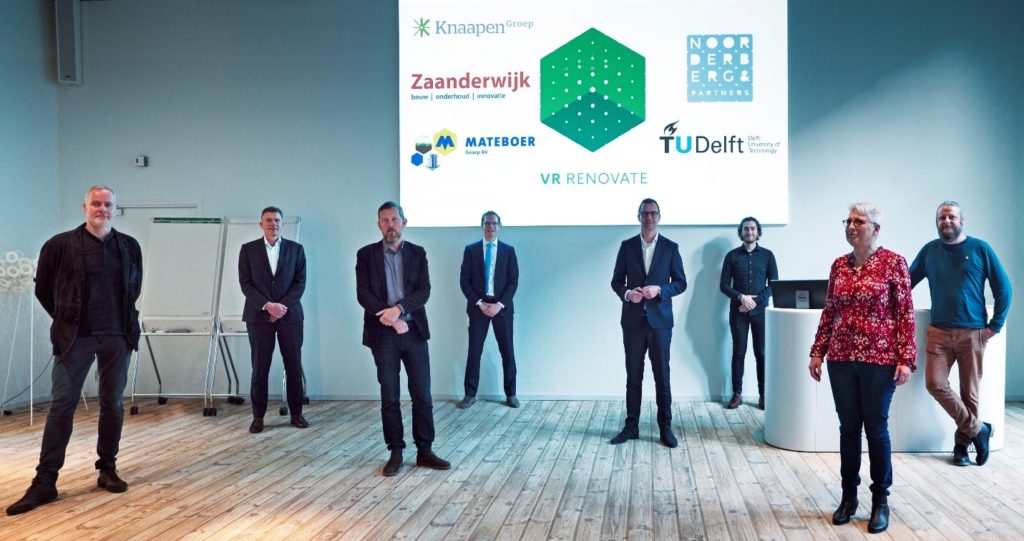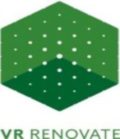Teknowlogy 2024
On 25 June 2024 we will be at Teknowlogy in Utrecht to give demo’s of some different immersive narratives we have developed so far to empower residents during retrofitting processes. See for more information: https://www.teknowlogy.nl/.
Interactive Virtual Reality: a look beyond the renovation works
Major home renovation projects often cause uncertainty and stress for the residents of social rental homes. Residents – sometimes due to a language barrier – often do not understand the impact of renovation works, and find it difficult to make choices. The use of interactive virtual reality (VR) changes this.
Virtual Reality
TU Delft is researching the influence of VR on people’s choice behavior. Now, this technique is being investigated by a consortium as part of renovation projects. With VR glasses on, residents can see their own home with the correct placement of doors and windows, floor coverings, and light. As they “walk-around” they see the impact of the renovation and understand why they need to make certain preparations. They also see the final result of the kitchen, bathroom, or sustainability options and adjust their choices on the spot.

First Living Lab in Tilburg
We made a video on our first living lab in Tilburg:
Pilot
A VR pilot project with construction company Mateboer Bouw BV, in Swifterbant in 2019/2020, showed that the use of VR ensures that residents are better prepared for the project, and are enabled to make better choices. More residents also appeared to opt-in for sustainability measures, the pilot showed an increase from 15 to 50%. Another important result was a significant decrease in residents who regret their choices made. The pilot could also count on enthusiasm: residents were curious and were eager to try the new technology.

More research
As a follow-up to the successful pilot, further research is now being carried out in a consortium into the use of VR as a communication tool in renovation projects. Recently, a project started in Tilburg of the KnaapenGroep on a multi-apartment building with 144 apartments. In this project, residents are supported in their choices regarding the bathroom, toilet, and façade layout using the VR modules. Besides, residents are informed through the VR about the nuisance they can expect during the renovation.

Consortium
The Faculty of Architecture of TU Delft, Noorderberg & partners, and the construction companies Mateboer Bouw BV, KnaapenGroep, and Zaanderwijk Groep are working together in the VR renovation project. This project aims to improve the communication process in renovation projects with tenants of social rental properties by applying interactive virtual reality.

On 25 November 2020, the partners and the dean of the Faculty of Architecture Dick van Gameren signed a consortium agreement for the project made possible by a grant awarded by the Dutch Organisation for Scientific Research (NWO). The grant was awarded to Dr. Clarine van Oel of the department Management in the Built Environment (MBE) of the Faculty of Architecture and the Built Environment as part of the Transitions and Behaviour program. The project also involves the head of the Computer Graphics and Visualisation group at the Faculty of Electrical Engineering, Mathematics and Computer Science Professor Elmar Eisemann, head of the TU-Delft VR-laboratory Arno Freeke, and MBE Ph.D. student Chris Benning and MBE researcher Jelle Koolwijk.
More information
For more information about the research, please contact Clarine van Oel of TU Delft c.j.vanoel@tudelft.nl.
Are you interested in VR for a renovation project? Please contact Jelle Koolwijk at TU Delft j.s.j.koolwijk@tudelft.nl
